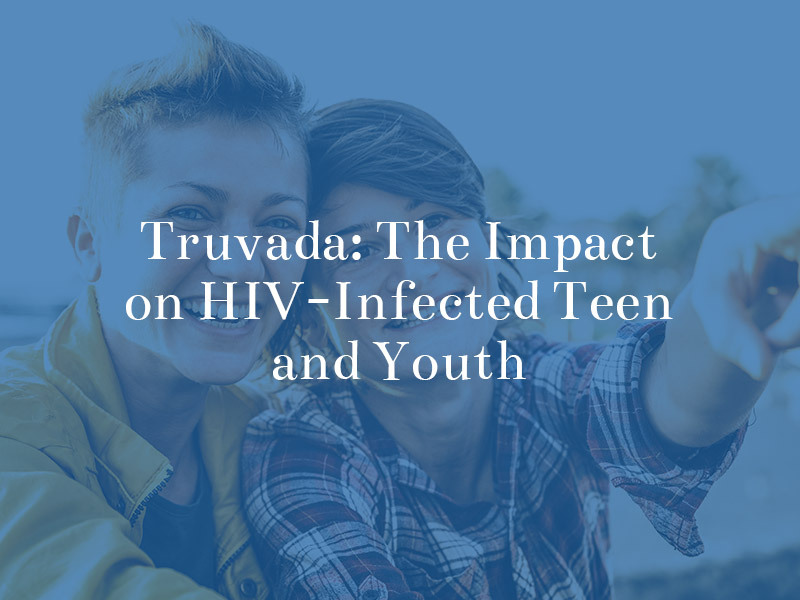A Voice for the Voiceless
The Dunken Law Firm is committed to helping each client find their voice and recover what has been lost.
START MY FREE CONSULTATIONOctober 21, 2019 | Firm News
There are boys under the age of 18 being diagnosed with HIV every 30 hours in the U.S. In hopes of preventing HIV infection in at-risk teens and youth, the Food and Drug Administration (FDA) approved taking Truvada (emtricitabine 200 mg/tenofovir disoproxil fumarate 300 mg) in May 2018, in addition to safer sex practices. For adolescents who are already infected with HIV, the development of antiretroviral (ARV) drugs such as Truvada, has turned an oftentimes fatal disease into a chronic condition with hopes of a conventional life. However, with soaring costs and potentially severe side effects, there is lingering skepticism regarding Truvada.

Truvada is a once-daily pill that combines two anti-HIV medications, tenofovir disoproxil fumarate (TDF) and emtricitabine, in order to reduce the amount of HIV in the body by blocking an enzyme that allows HIV to make copies of itself. In 2004, it was first approved to treat HIV in adults and children over 37 pounds. Although it is not a cure, it can be taken in combination with other HIV medications to combat the illness and reduce the risk of transmitting it to others.
In 2012, Truvada was then approved as an HIV prevention strategy called pre-exposure prophylaxis (PrEP) for adults. Taking the medication for PrEP can be very effective if consistently taken as prescribed, having a more than 90% success rate in some high-risk groups. The medication has only been approved as preventative care for teens and youth over 77 pounds since May 2018.
In addition to the high costs of treatment, Truvada and other TDF drugs have come under scrutiny due to their ability to cause severe injuries, especially to the kidneys and bone density. Lawsuits have and are being filed against the drug’s manufacturer, Gilead Sciences, Inc., throughout the U.S. Serious injuries that are commonly occurring, include:
Plaintiffs are claiming that Gilead has failed in their duty to warn Truvada patients of the known severe side effects. Lawsuits are also alleging the company held out on producing an already developed drug that was known to be safer than Truvada, in an effort to avoid profit loss until Truvada’s patent expired.
If a doctor has confirmed that you or a loved one is suffering adverse effects related to Truvada, contact a Truvada lawyer from The Dunken Law Firm. You may be entitled to compensation, and we have more than 25 years of experience advocating for victims injured by large pharmaceutical companies. Receive a free consultation today by calling us at (713) 554-6780 or filling out our online contact form.